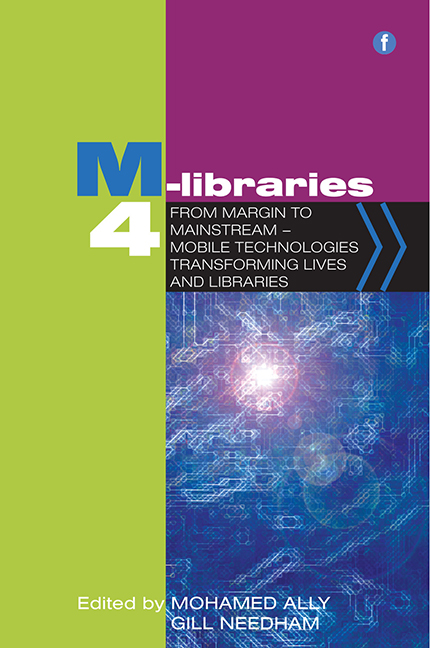13 - Making sure to remember what we already know: ensuring e-reading innovation works
Published online by Cambridge University Press: 10 September 2022
Summary
Background
We often say in mobiles-for-development that today most people in the developing world will make their first phone call on a mobile, and have their first experience of the Internet on one, too. Perhaps children, in the not-too-distant future, will have their first experience of reading on an e-reader?
Ken Banks, 30 January 2012The road to hell is paved with good intentions. In the 1960s and 1970s the fields of Africa were littered with tractors and other mechanical toys sent by well-meaning donors who focused on what they thought they knew – that mechanical farming increased yields – whilst forgetting that such machines need parts and fuel to do so. They also cheerfully ignored the labour force changes required for a socio-economic environment that would encourage the economic growth they envisaged (and thus reduce the poverty which was the target of their endeavours). Some would argue that little has changed. One Laptop Per Child (OPLC) and other technology initiatives have been accused by some of replicating the same paternalistic mistakes of the 1960s and 1970s. Others, like Ken Banks, above (M-Libraries keynote speaker in 2009), see the affordances of new technologies as powering almost irresistible change.
In practice it is extremely easy to create electronic text, find a network to transmit it, then locate a device which can store and reproduce it. Every week, or so it seems, new devices, new software and better access are touted by a worldwide market that has already delivered 6.5 billion mobile subscribers. Saturation phone ownership numbers have been reached in countries labelled as ‘developed’ and phone ownership rates in the world generally indicate that gadgets like smartphones, or devices with similar capability, are now the technology of choice for much of the world's population. At the time of the MLibraries conference (September 2012), keynote speaker Steve Vosloo reported that 77% of mobile connections were in developing countries. Other sources report that one billion women in low-income countries own a mobile phone of some kind. And, although the mobile playing field is not level, solutions are now available to previously insoluble related problems such as the non-availability of electricity, absence of service providers, remote physical location, etc.
- Type
- Chapter
- Information
- M-Libraries 4From Margin to Mainstream - Mobile Technologies Transforming Lives and Libraries, pp. 113 - 122Publisher: FacetPrint publication year: 2014



